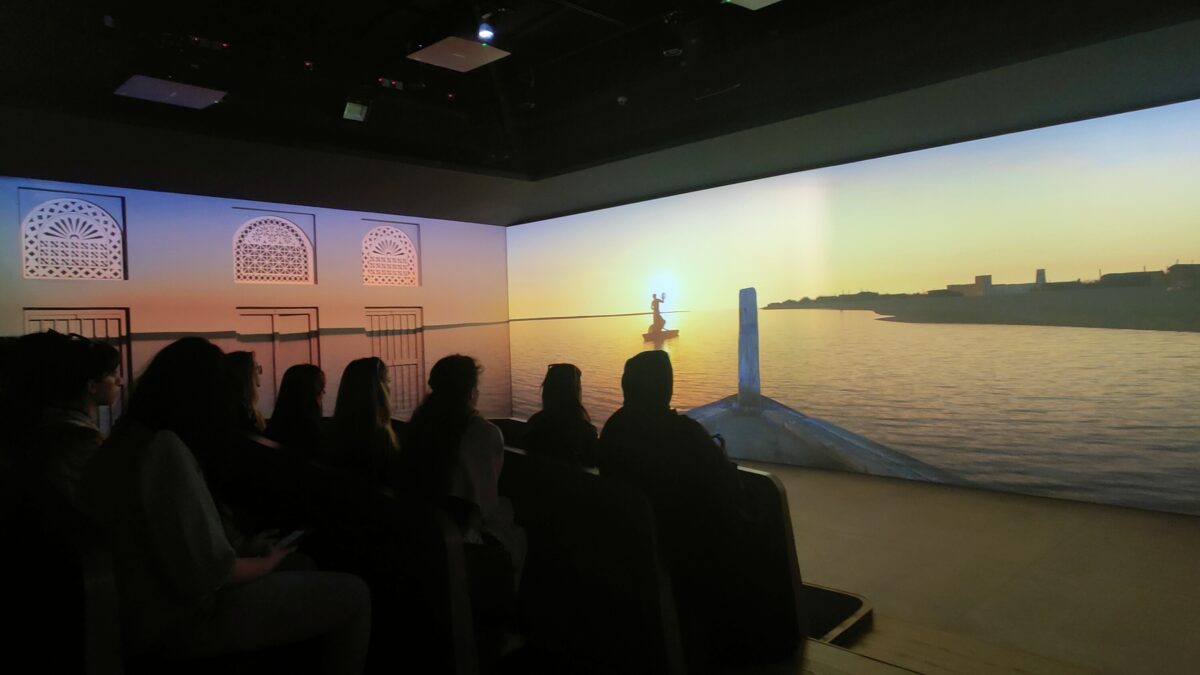ICOM Dubai 2025: A True Opportunity for Reflection on museology

01/12/2024
Editorial
At the beginning of November, I had the pleasure of returning to Dubai to participate in the preparatory symposium for the upcoming General Conference of the International Council of Museums (ICOM), scheduled for November 2025. Following this visit, I am deeply convinced that this event will be an extraordinary opportunity to engage with diverse museological perspectives, challenge the dominant ideas characterizing museology and museography, and transcend established paradigms. I hope it will foster mutual openness to ways of thinking that reflect the diverse realities of our global world.
During my recent trip, I had the opportunity to see this city through the eyes of many museum colleagues visiting for the first time, many of whom struggled to overcome their deeply rooted museological beliefs and certainties.
Dubai: Beyond First Impressions
Dubai is not just a glittering skyline or a stage for technological innovation. Nor is it the dystopian city imagined by Ridley Scott in Blade Runner. It is a city that constantly challenges perceptions—even in museology. One may agree or disagree with its approach, appreciate it or not, but it cannot be dismissed or downplayed.
In the museum world, decolonization is a widely discussed topic, yet we often find ourselves trapped in mental models and practices deeply rooted in 19th- and 20th-century museological concepts.
The Challenge of the Intangible
In the West, we are accustomed to conceiving museums as places for preserving and showcasing tangible objects. In Dubai, however, exhibition practices reflect a culture that places greater emphasis on the intangible: stories, oral traditions, and shared symbols. Even when material collections exist, they often relate to a nomadic tradition in which objects hold a different value—more functional than historical or aesthetic—compared to what we consider artistic heritage in the West.
Some colleagues perceived Dubai’s museums as "empty of objects" and sparse, lacking the narrative density and objectives to which we are accustomed. However, in my view, this perception reveals more about the limitations of the cultural lenses through which we observe them than the reality of what they represent.
Perhaps this is the crux of the matter.
Musealizing the Present
One of the most intriguing challenges Dubai is addressing is the “musealization of the present.” In a nation so young—where literacy and individual development, especially for women, were nearly nonexistent 50 years ago, and where the concept of heritage or cultural wealth was not considered until more recently—there is a strong need to celebrate the extraordinary leap achieved in such a short time.
Is everything perfect? Certainly not. As in society, Dubai and Emirati museums still have much to improve, particularly in their approaches to audience engagement, asking questions, providing open and stimulating answers, addressing controversial topics, and granting greater managerial autonomy to museum directors.
However, we cannot expect a nation where museology is still young to immediately solve issues that have challenged Western museums for over a century. The narrative they have developed—sometimes grandiose—also serves as a tool for building collective awareness and establishing a national identity that has been threatened by rapid globalization. It is an attempt to recover as much as possible of what was nearly lost—a historical phase that demands “musealization.”
Beyond Differences
Here lies perhaps the greatest difference: the musealization of the present versus that of the past. The use of museums to construct the future, as opposed to understanding the present. While Western museums strive to comprehend the past, Dubai’s museums are designed to stimulate a vision for the future.
An Opportunity to Rethink
This journey reminded me of the importance of suspending judgment and embracing new paradigms. Dubai will offer us a valuable opportunity: listening, learning, and accepting approaches that challenge our certainties could be the key to reinventing the role of museums in the 21st century.
Of course, they too will need to learn, particularly the art of listening, but we, as Western cultural professionals, cannot afford to overlook or refuse to understand the models offered by museums that differ from ours.








